„A moment for the Universe, might mean an entire existence for Mankind.”
Here is my theory about the Chronoverse.
When we think about the Universe and our place within it, one of the most profound questions we encounter is: what is the nature of time? Currently, our understanding of the Universe is based on observable phenomena, yet I argue that the true essence of time may elude us.
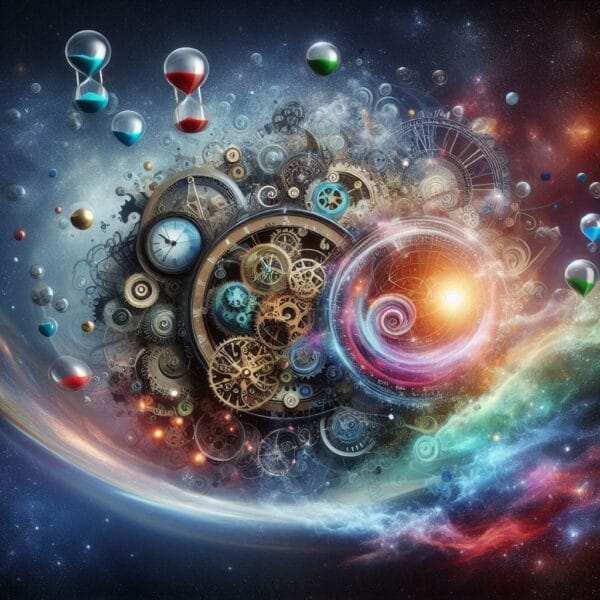
The Nature of Time
Rather than viewing time as a simple linear progression measured in seconds, minutes, or hours, I propose that we might consider it as a series of moments. Maybe a „moment” perceived for the Universe, could mean an entire existence for mankind. I think the way we „go” through these moments, we perceive time. By diving into time dilation caused by gravity or by fractions of the speed of light, this perspective opens up an intriguing possibility. What if each moment in time represents something vastly different for the Universe itself? Mentioning that the Universe is expanding at a rate, it might even go beyond the speed of light. I could be wrong, but we might exist in a cosmic time dilation. If time is, indeed, an illusion shaped by human perceptions, we might conclude that the Universe is a continuum of sequences, intricately woven into the fabric of a broader Chronoverse defined by unknown intervals. Something still unfolding for us, might be something that already happened for the universe. If we were to be able to „step out” of the Universe and look at it from the outside, we could see the entire timeline of the universe, both past and future.
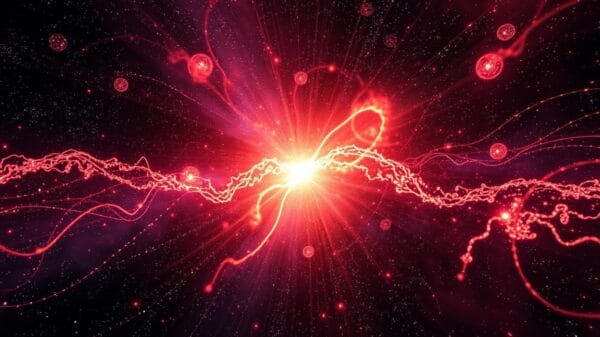
Conceptualizing Parallel Realities (existing in an infinite universe):
I consider the Chronoverse as being moments in time. Therefore I consider the Universe a sequence of moments. (As a side note, I think, this time interval of a moment could be the Planck time).
From my viewpoint, the Chronoverse can be understood as encompassing not just numerous parallel realities but the entirety of past, present, and future. In this framework, traveling across parallel real identical Universes can essentially be viewed as a form of time travel—venturing into what might be perceived as present, past or future segments of existence. Keep in mind that in an infinite Universe structures will eventually repeat endlessly, resulting in identical cosmic webs which are being reflected in the micro levels of reality too, including planets, solar systems, galaxies and living organism, some intelligent ones also, with even similar consciousnesses. These realities could exist in the past, present or future, depending on when they sprang into existence (before, after or at the same moment), compared to a given Universe, cosmic structure or other micro and macro level entities „unfolding” within them.
I believe that the decisions we make are not just isolated events but are mirrored across all parallel Chronoverses. In essence, if you make a spontaneous choice today, every alternate version of you in the parallel Chronoverse has already made a similar decision. This underscores a deterministic view: while it may feel like we are altering the future through our choices, I argue that those choices are already part of a larger, predetermined tapestry of existence, meaning you can’t cheat the flow of time.
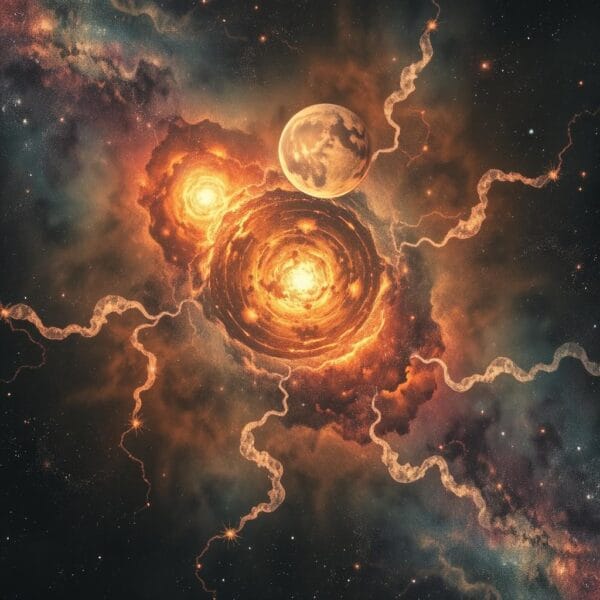
The Mechanics of Parallel „Chronoverse” Travel (quantum perspective):
The notion of traveling through the Chronoverse introduces fascinating challenges. If we were to change something in our past, we wouldn’t merely alter the timeline we come from. Instead, we would create a new branch within the Chronoverse, akin to a tree sprouting new roots. This newly formed branch carries the consequences of our actions, but our original timeline remains unchanged.
Consider this: if you could convey information from a past moment of a parallel Chronoverse into your current reality, you would be effectively initiating a divergence in the Chronoverse system. This action would create new moments and possibilities without impacting the original Chronoverse from which you came. Similarly, if one were to travel to the future, the knowledge gained would open a new series of events that didn’t exist previously. Every time travel attempt opens up a new parallel Chronoverse, meaning you would never be able to return to you original Chronoverse. Also by these means, in a parallel Chronoverse (opened through time travel) can be only two of the same, identical persons. Meaning a third same person (or more) can’t come into equation since it would travel into a parallel Chronoverse never being able to meet another two same self. So traveling through parallel Chronoverses is limited to only two versions of self. (Strictly in terms of time travel, cause if we consider the larger Universe infinite, there can be infinite versions of your self and same „worlds” in different time frames – past, present, future.)
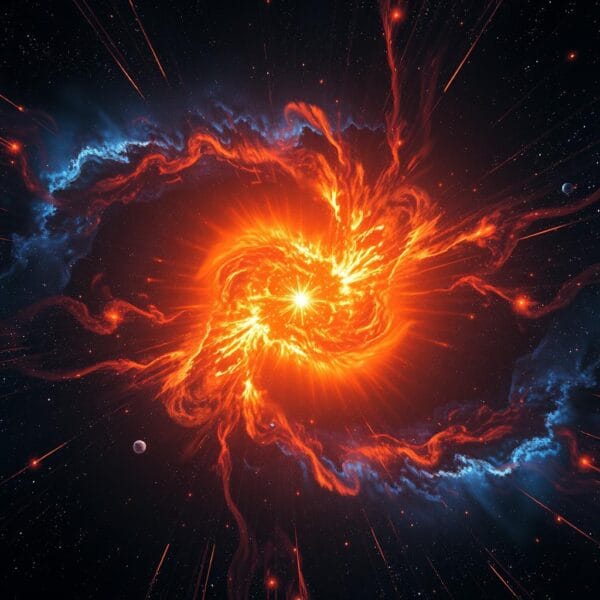
The Chronoverse is a complex concept that intertwines with our understanding of time, choice, and existence. While my interpretation may diverge from conventional scientific views, it encourages us to contemplate the profound implications of our decisions and the nature of reality itself. As we delve deeper into the realms of science and philosophy, we find ourselves grappling with questions that challenge our perceptions of time and the Chronoverse, inviting us to explore the infinite possibilities that await in the tapestry of existence.
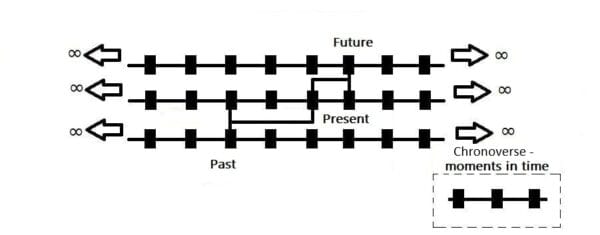
Why Time Might Be Considered an Illusion
The process of aging is often perceived as a measure of time, but fundamentally, it is more accurately linked to the continuous exchange of particles and energy between living organisms and their environment. This constant interaction drives biological changes, making aging a reflection of ecological and metabolic processes rather than an intrinsic passage of time.
The concept of time itself is a human construct—an essential tool we use to synchronize our activities with the celestial movements. For instance, the rotation of the Earth defines day and night, while its orbit around the Sun establishes the cycle of years. These cycles help us organize our lives, but they are arbitrary markers based on cosmic motions rather than an absolute measure of an external, universal flow.
Furthermore, phenomena like time dilation in relativity suggest that time is not absolute. When traveling at speeds close to that of light, the amount of distance covered appears different depending on the observer’s frame of reference. For example, a spaceship traveling near light speed might experience only a few hours, while years pass for observers on Earth, because the same amount of distance is covered with different speeds. This indicates that what we perceive as the flow of time depends on relative motion, challenging the idea of time as a fixed, universal backdrop—suggesting instead that it may be a flexible, observer-dependent illusion.
Here a few of my Facebook posts packed together and reformulated for this article:
🌀 Time: The Greatest Illusion We’ve Ever Agreed Upon
We wear it on our wrists, schedule our lives around it, and fear running out of it. Yet what if time—as we know it—isn’t real at all? What if it’s just a clever mental framework, a human invention to make sense of motion, change, and memory?
Let’s explore the cracks in the concept of time and why many thinkers, physicists, and philosophers argue that it’s not a fundamental feature of reality—but a construct of the human mind.
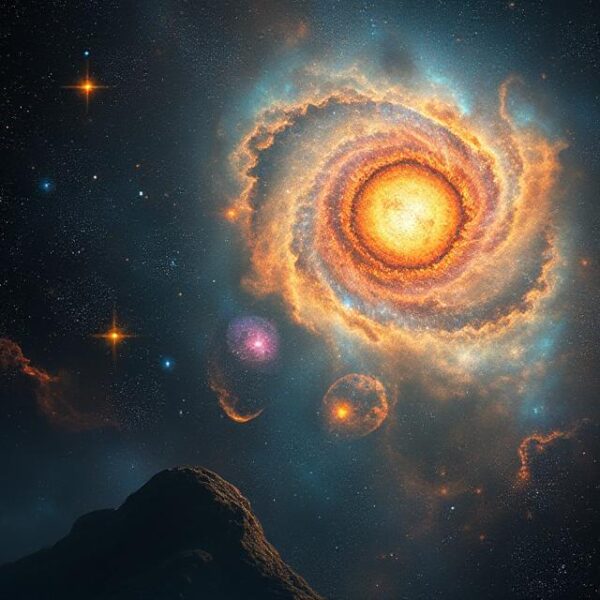
🚀 A Photon’s Journey: No Time Required
A photon, traveling at the speed of light through the vacuum of space, covers immense distances. Yet from its own perspective, it doesn’t experience time. According to Einstein’s theory of relativity, time essentially stops at light speed. So how can something move without experiencing time? Because motion doesn’t require time—it requires space and velocity. Time, in this case, is irrelevant.
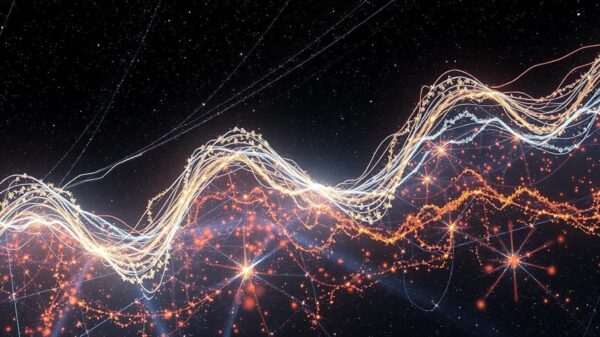
⏳ Time Dilation: A Matter of Speed, Not Time
When astronauts travel at high speeds, they experience time differently than people on Earth. This phenomenon—time dilation—shows that what we call “time” is deeply tied to velocity and position. If you travel fast enough, your “hours” can stretch into “years” back on Earth. But what’s really changing? Just your position in space. Time is merely the label we slap onto that change.

🌌 We Move Through Space, Not Time
Think about it: every moment of your life is a change in spatial position. You’re not moving through time—you’re moving through space. Time is the comparison between where you are now and where you were before. It’s a measurement, not a medium.

🛸 Time Travel? Just High-Speed Motion
We fantasize about time machines and jumping into the future. But what does “traveling into the future” really mean? It’s just moving through space at high speeds. The faster you go, the more your biological processes slow down relative to others. Again, it’s not time you’re manipulating—it’s motion and energy.
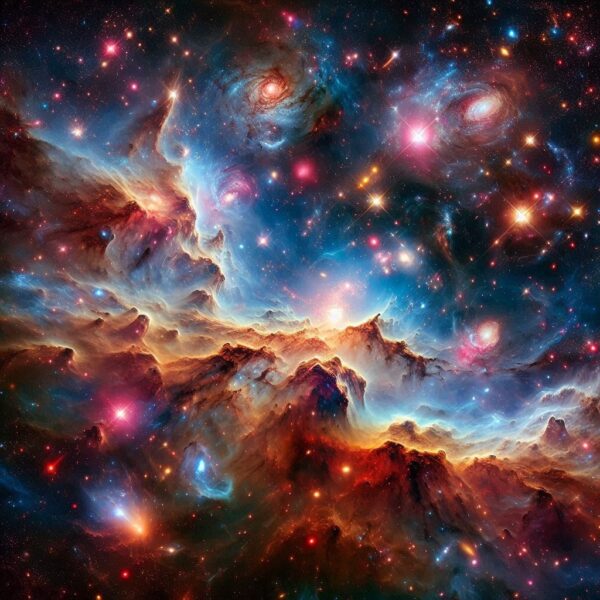
🧭 Spacetime or Just Space + Speed?
The term “spacetime” suggests that time is woven into the fabric of the universe. But what if it’s just space and velocity? All the effects we attribute to time—aging, decay, motion—can be explained by energy exchanges and spatial relationships. Time is just the ruler we use to measure those changes.
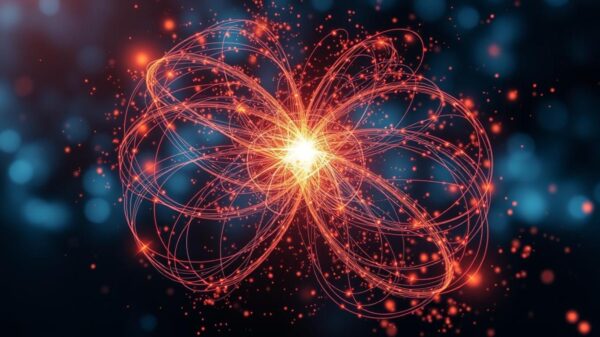
🧬 Aging: A Dance of Particles, Not a March of Time
We age because of biochemical processes, energy exchanges, and entropy. Not because “time passes.” If you could freeze all particle interactions, aging would stop. Time doesn’t cause aging—physics does.

🕰️ The Clock Trick: Temperature vs. Time
Set your thermostat to 24°C, and the room will reach that temperature. Now try setting your clock two years ahead. Nothing changes. Why? Because temperature is a physical property. Time is just a number on a dial. It doesn’t affect reality unless we act upon it.

🔮 The Future Is Unknown—Because Time Isn’t Real
If time were a real dimension like space, we’d be able to “see” the future just as we see distant stars. But we can’t. The future doesn’t exist until it happens. That’s because time isn’t a place—it’s a concept.
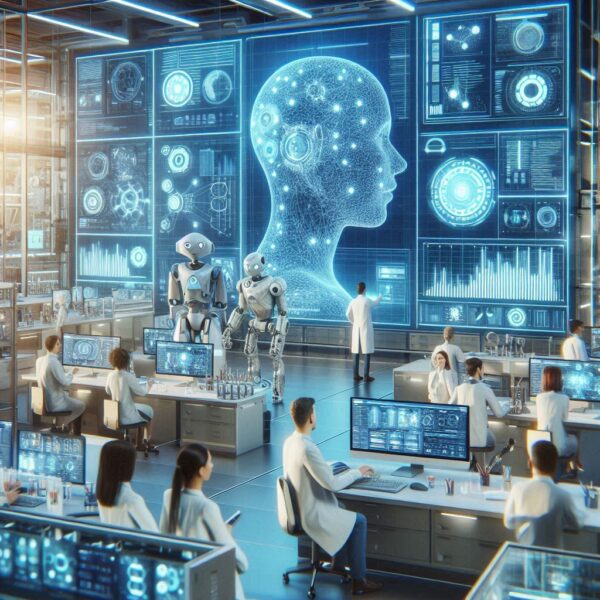
🧭 Synchronization, Not Substance
We use time to coordinate meetings, flights, and meals. It’s a tool for synchronization, not a fundamental force. And since it’s relative—changing with speed and gravity—it’s not fixed or universal. That makes it a construct, not a constant.
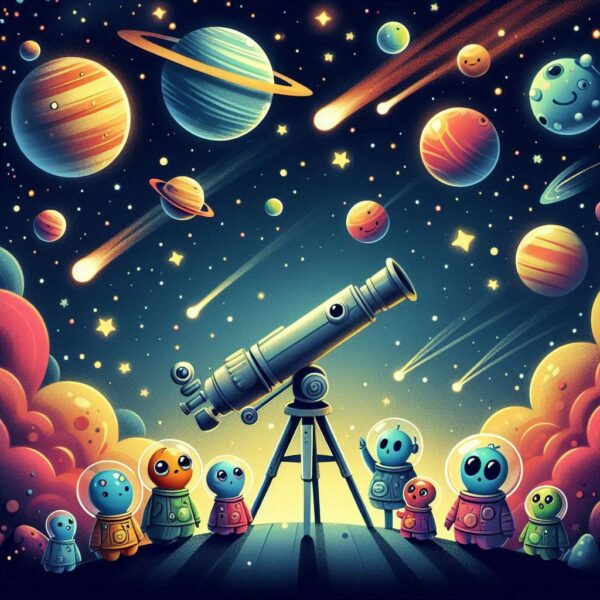
🧠 Memory: The Only Proof of Time?
Imagine a world with no memory, no records, no history. Could you prove the past existed? Without memory, time collapses. It’s our recollection of change that gives time its illusion of flow. Without it, there’s only now.
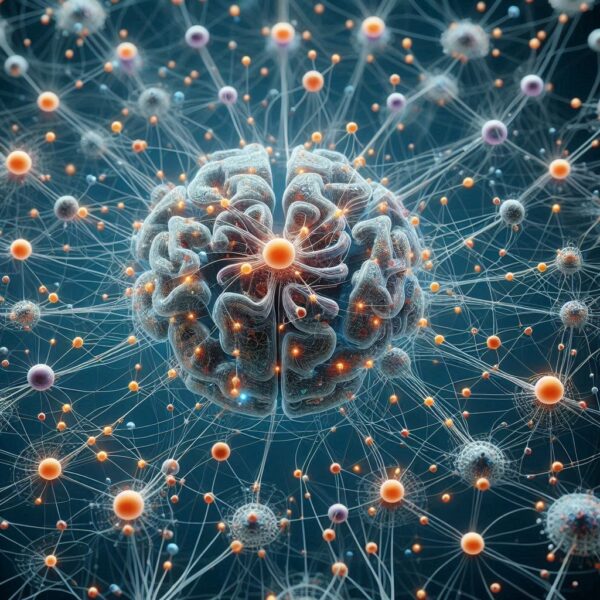
🧠 Final Conclusion:
Time is not a river we float down. It’s a map we draw after the journey. What we call “time” is just our way of organizing change, motion, and memory. The universe doesn’t tick—it moves. And we, in our need for order, invented time to make sense of it all. This means in my view that we exist in a continuous present, but due to changes ingeneral and motion within space, we needed to attributed it an additional temporal dimension to make sense of the dynamic nature of the universe.